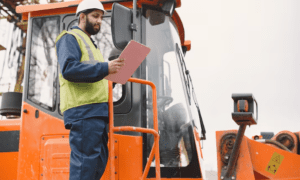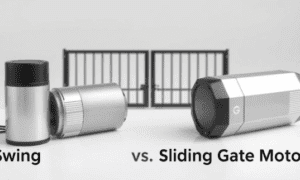Trailer rentals simplify tasks ranging from moving furniture to hauling construction materials, but proper preparation is key to ensuring a stress-free experience. From choosing the right trailer to managing transport safely, careful planning saves time, money, and effort.
In this article, we provide a step-by-step guide to preparing for a trailer rental, ensuring your next project is smooth and hassle-free.
Step 1: Assess Your Project Needs
Before renting a trailer, take the time to evaluate your specific requirements.
Key Questions to Ask:
- What Are You Transporting?
- Determine the size, weight, and type of cargo to identify the most suitable trailer.
- For large or heavy items, consider flatbed trailer rentals or dump trailer rentals.
- If you need weather protection, enclosed trailer rentals may be the best choice.
- How Far Are You Traveling?
- Longer trips may require trailers with enhanced safety features or higher weight capacities.
- What Is Your Timeline?
- Define your rental period to ensure you have enough time for loading, transport, and unloading.
Step 2: Choose the Right Trailer
Selecting the appropriate trailer is critical for efficient and safe transport.
Trailer Types to Consider:
- Utility Trailer Rentals
- Best for lightweight items or yard equipment.
- Easy to tow and maneuver.
- Dump Trailer Rentals
- Ideal for construction debris, landscaping waste, or bulk materials.
- Hydraulic systems simplify unloading.
- Enclosed Trailer Rentals
- Provide weather protection and security for valuables or fragile items.
- Suitable for moving, event equipment, or business supplies.
- Flatbed Trailer Rentals
- Designed for oversized or heavy loads like machinery or large construction materials.
Step 3: Verify Your Towing Vehicle
Ensure your towing vehicle is compatible with the trailer you plan to rent.
Key Considerations:
- Towing Capacity: Check your vehicle’s manual to confirm it can handle the trailer’s weight, including the cargo.
- Hitch Type: Match the trailer’s hitch style (e.g., ball hitch, gooseneck) with your vehicle’s setup.
- Brake Controller: For larger trailers, ensure your vehicle is equipped with a brake controller for added safety.
Step 4: Plan Your Route
Mapping your route in advance helps avoid potential obstacles and delays.
Tips for Route Planning:
- Avoid Low-Clearance Areas: Check for bridges, overpasses, or tunnels that may be too low for tall trailers.
- Choose Wide Roads: Narrow streets can make maneuvering difficult, especially for larger trailers.
- Account for Traffic Conditions: Plan travel during off-peak hours to minimize stops and starts.
Step 5: Prepare Your Cargo
Properly preparing and loading your cargo ensures safety and efficiency during transport.
Packing Tips:
- Use Protective Materials: Wrap fragile items with padding or blankets.
- Distribute Weight Evenly: Place heavier items at the center of the trailer to maintain balance.
- Secure the Load: Use ratchet straps, ropes, or netting to keep cargo in place.
Step 6: Inspect the Trailer Before Use
Before leaving the rental lot, conduct a thorough inspection of the trailer.
What to Check:
- Tires: Ensure they are properly inflated and free of visible damage.
- Lights: Test brake lights, turn signals, and tail lights for functionality.
- Hitch Connection: Confirm the hitch is secure and safety chains are attached.
- Hydraulic Systems (if applicable): Check dump trailers for smooth operation.
Step 7: Drive Safely
Towing a trailer requires adjustments to your driving habits to ensure safety.
Safety Guidelines:
- Reduce Speed: Drive at a moderate pace to maintain control.
- Increase Stopping Distance: Allow extra space between your vehicle and others on the road.
- Avoid Sudden Maneuvers: Gradual turns and lane changes prevent trailer sway.
Step 8: Return the Trailer Responsibly
Adhering to the rental company’s policies ensures a smooth return process and avoids additional fees.
Return Checklist:
- Clean the Trailer: Remove debris, dirt, or leftover materials.
- Inspect for Damage: Note any issues and report them to the rental provider.
- Adhere to Return Times: Returning the trailer on time avoids late fees.
The Big Rentals Advantage
Big Rentals makes trailer rentals simple and stress-free by providing:
- A wide range of options, including dump trailer rentals, enclosed trailer rentals, flatbed trailer rentals, and utility trailer rentals.
- Flexible rental periods to fit your schedule.
- Expert guidance to help you choose the right trailer for your needs.
Common Challenges and How to Avoid Them
1. Overloading the Trailer
Exceeding the trailer’s weight capacity can lead to unsafe driving conditions and damage to the trailer.
Solution: Check the Gross Vehicle Weight Rating (GVWR) and load limits before transporting your cargo.
2. Improper Hitching
An improperly secured hitch can cause the trailer to detach while driving.
Solution: Double-check all hitch connections and safety chains before departure.
3. Ignoring Local Regulations
Some areas have specific laws for trailer use, such as lighting requirements or speed limits.
Solution: Research local regulations to ensure compliance.
Bonus Tips for a Smooth Experience
- Bundle Rentals for Larger Projects: If you need multiple trailer types, ask about package deals to save money.
- Bring Extra Equipment: Carry spare straps, gloves, and a basic tool kit for unexpected situations.
- Take Photos Before Use: Document the trailer’s condition to protect yourself from unfair damage claims.
Conclusion
Preparing for a trailer rental doesn’t have to be overwhelming. By assessing your needs, planning your route, and following safety guidelines, you can ensure a smooth and stress-free experience. Whether you need a dump trailer, enclosed trailer, flatbed trailer, or utility trailer, taking the time to prepare will save you time and effort in the long run.
Big Rentals provides high-quality trailers and expert support, helping you tackle any project with confidence. Explore their rental options today and take the first step toward a successful transport experience.
Read More From Techbullion



































